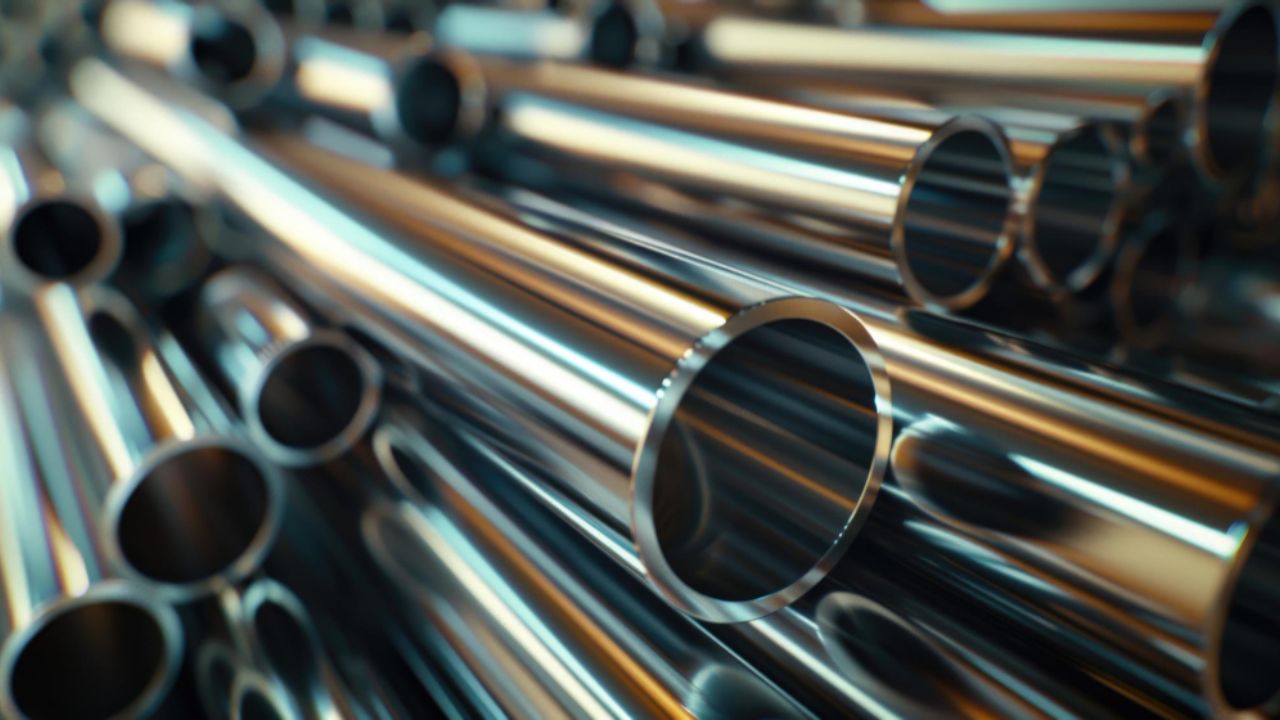Industrial systems heavily rely on steel pipes as essential components but Schedule 80 steel pipes emerge as the top choice for demanding applications. Schedule 80 pipes maintain their popularity through their engineered thick walls which both deliver powerful resistance to corrosion and manage high-pressure applications. Visit https://www.tuspipe.com/blog/schedule-80-steel-pipe/ to see Schedule 80 pipe thickness Charts. The article examines Schedule 80 steel pipes by demonstrating their exceptional strength and durability.
What is Schedule 80 Steel Pipe?
Schedule 80 steel pipe represents a pressure-resistant pipe system. It maintains its structural integrity through thicker walls than Schedule 40 pipes. The "schedule" number specifies wall thickness and Schedule 80 pipes achieve their superior strength through their thick walls. Manufacturers produce these pipes from carbon steel stainless steel and alloy steels according to environmental conditions and substance transportation requirements.
Key Features Contributing to Strength
What makes Schedule 80 steel pipes particularly distinctive among all steel pipe options is their thicker-than-average walls. The increased thickness provides several key benefits:
Enhanced Pressure Resistance:
That thicker wall composition makes Schedule 80 pipes able to endure more pressure from the inside without breaking. These pipes work best in applications requiring high-pressure handling such as oil and gas pipelines together with chemical processing facilities.
Increased Structural Integrity:
Schedule 80 pipes maintain their structural integrity because they use solid construction which resists external forces. In construction and heavy industrial environments, mechanical stress makes this strength attribute of Schedule 80 pipes vital for application success.
Durability in Harsh Conditions:
Schedule 80 steel pipes woven to withstand extreme temperatures corrosive chemicals and rough environmental conditions. Universal cycles enable smooth operation through tough environments because their durable construction prevents premature breakdown.
Applications of Schedule 80 Steel Pipes
Chemical Processing Plants:
The chemical processing industry depends heavily on Schedule 80 steel pipes to transport corrosive materials through their facilities. Schedule 80 steel pipes use both thicker construction and suitable corrosion-resistant materials to stop leaks and maintain system integrity throughout aggressive chemical and acidic operations. Schedule 80 pipes demonstrate exceptional resistance to pitting and scaling which helps stop pipeline failures.
Oil and Gas Industry:
The oil and gas sector depends heavily on Schedule 80 pipes to move oil gas and other fluids through high-pressure systems. The pipes have been engineered to function in demanding deep-sea and underground pipeline environments. Schedule 80 pipes demonstrate superior strength characteristics which reduce their susceptibility to failure when operating under high-pressure conditions and temperature fluctuations typical of the oil and gas industry.
Construction Projects:
Construction sites need materials that can handle substantial weight loads while maintaining their performance in outdoor conditions. Schedule 80 steel pipes to deliver dependable performance for structural applications steam systems and additional applications. These pipes excel as a solution for projects due to their resistance against high-pressure water systems and their strong mechanical toleration properties.
Durability in Extreme Temperatures
Schedule 80 steel pipes demonstrate exceptional resistance to harsh temperature conditions. The pipes demonstrate resistance and strength throughout both hot and cold temperature conditions. Schedule 80 pipes find their perfect application in steam systems because they withstand thermal expansion together with contraction without sustaining damage to their structural integrity. Schedule 80 pipes demonstrate resistance to ice formation stress in freezing conditions which makes them appropriate for installations in cold weather environments.
Corrosion Resistance
The chemical processing industry and oil and gas sector face major corrosion challenges because their pipelines encounter materials that cause rusting and degradation. Schedule 80 steel pipes use stainless steel or alloy steel as their materials because these substances demonstrate excellent corrosion resistance. These pipes demonstrate excellent resistance to rust and corrosion protection which allows them to maintain enduring strength while facing exposure to harsh chemicals and salty environments.
Installation Considerations
Schedule 80 steel pipes deliver superior strength but their increased wall thickness results in heavier materials presenting installation challenges when compared with lighter Schedule 40 pipes. Installation of Schedule 80 steel pipes demands both specialized equipment and careful handling because of their increased weight. Foliage-tiering workers should plan for pipe weight during lift activities to maintain pipe integrity while protecting personnel safety. Thicker pipe structures limit installer flexibility by necessitating detailed cutting precision alongside accurate measurements during building operations.
Conclusion
The Schedule 80 steel pipe serves essential functions while providing durability and dependability to industries navigating extreme environments. These pipes serve chemical processing oil and gas applications and construction projects because they have thicker walls and improved pressure resistance and corrosion resistance. These materials maintain reliable performance throughout the years because they resist harsh environments high temperatures and corrosive substances. The installation process demands careful attention because of their weight and thickness but Schedule 80 steel pipes provide long-lasting benefits that lead industries to choose them for safety performance and durability needs.


